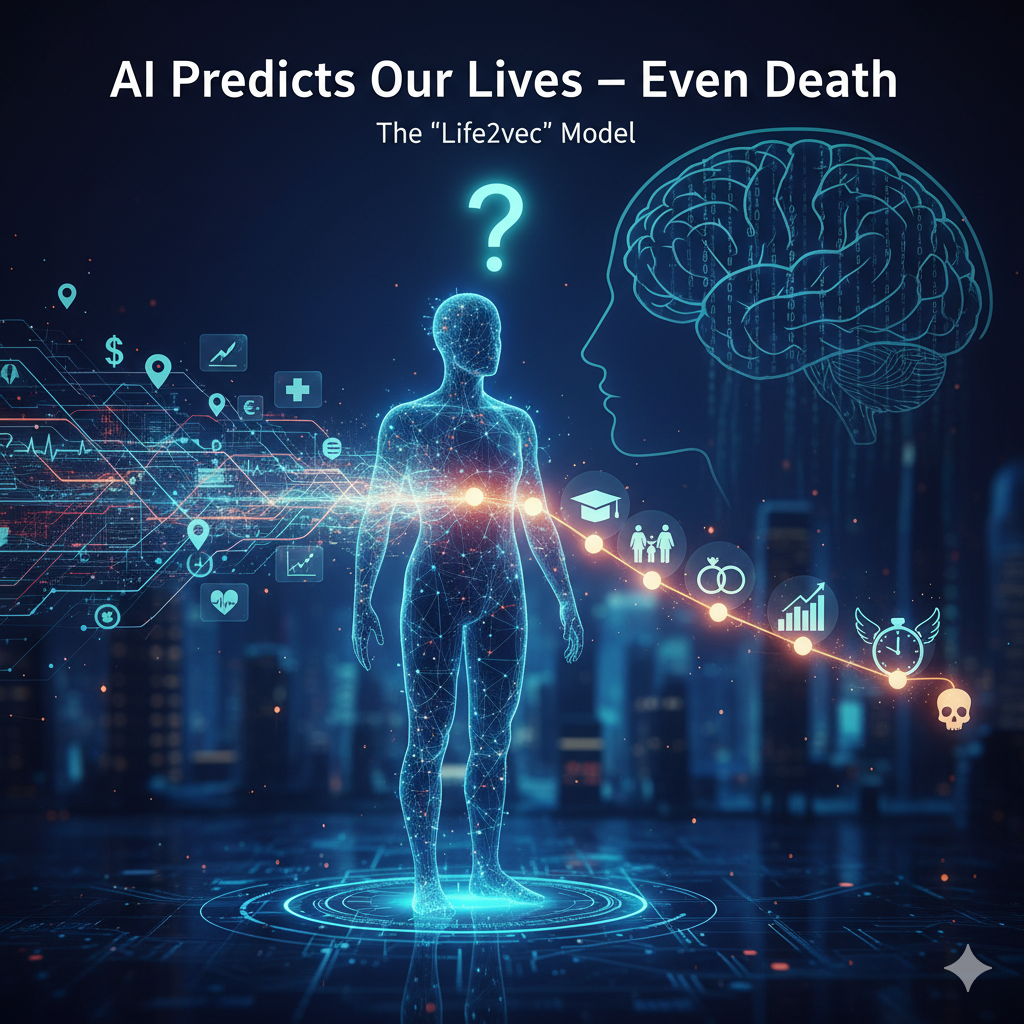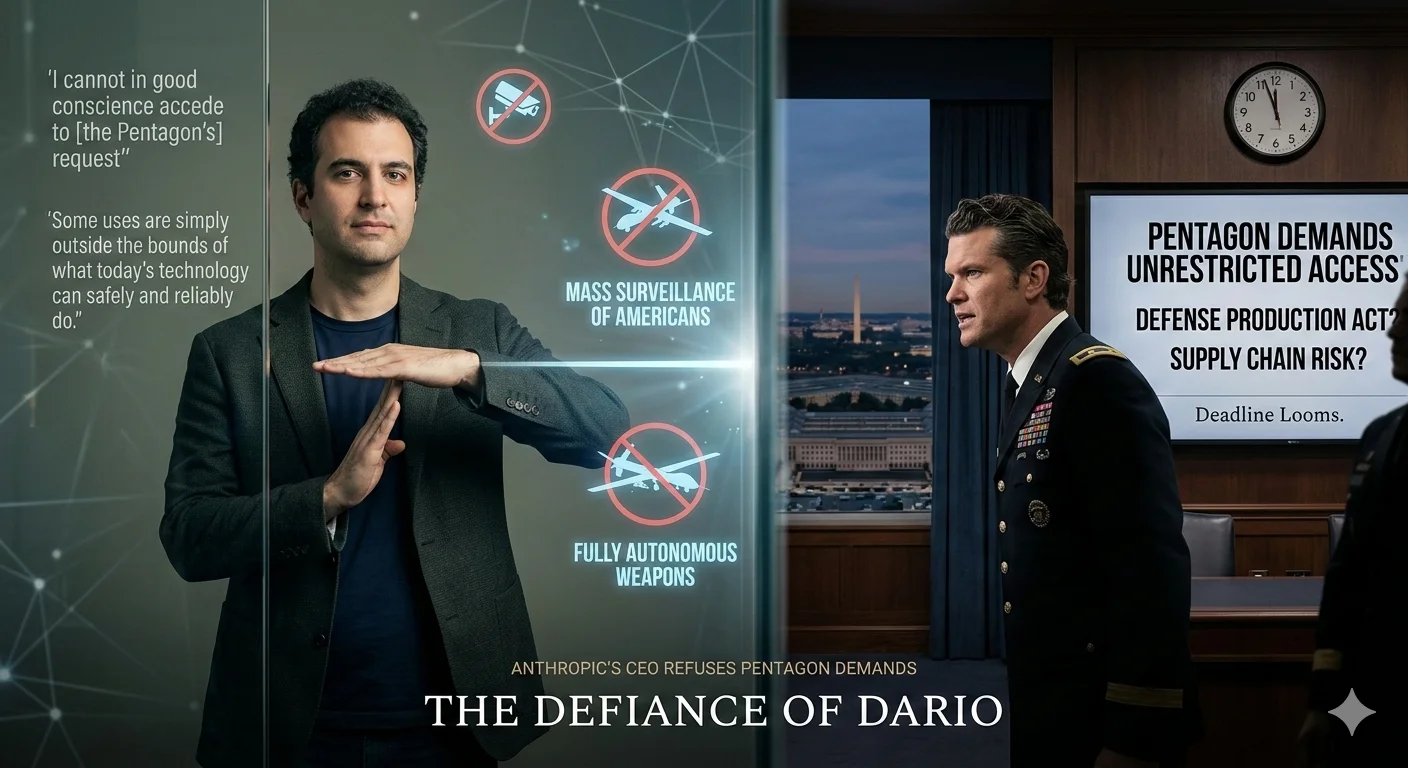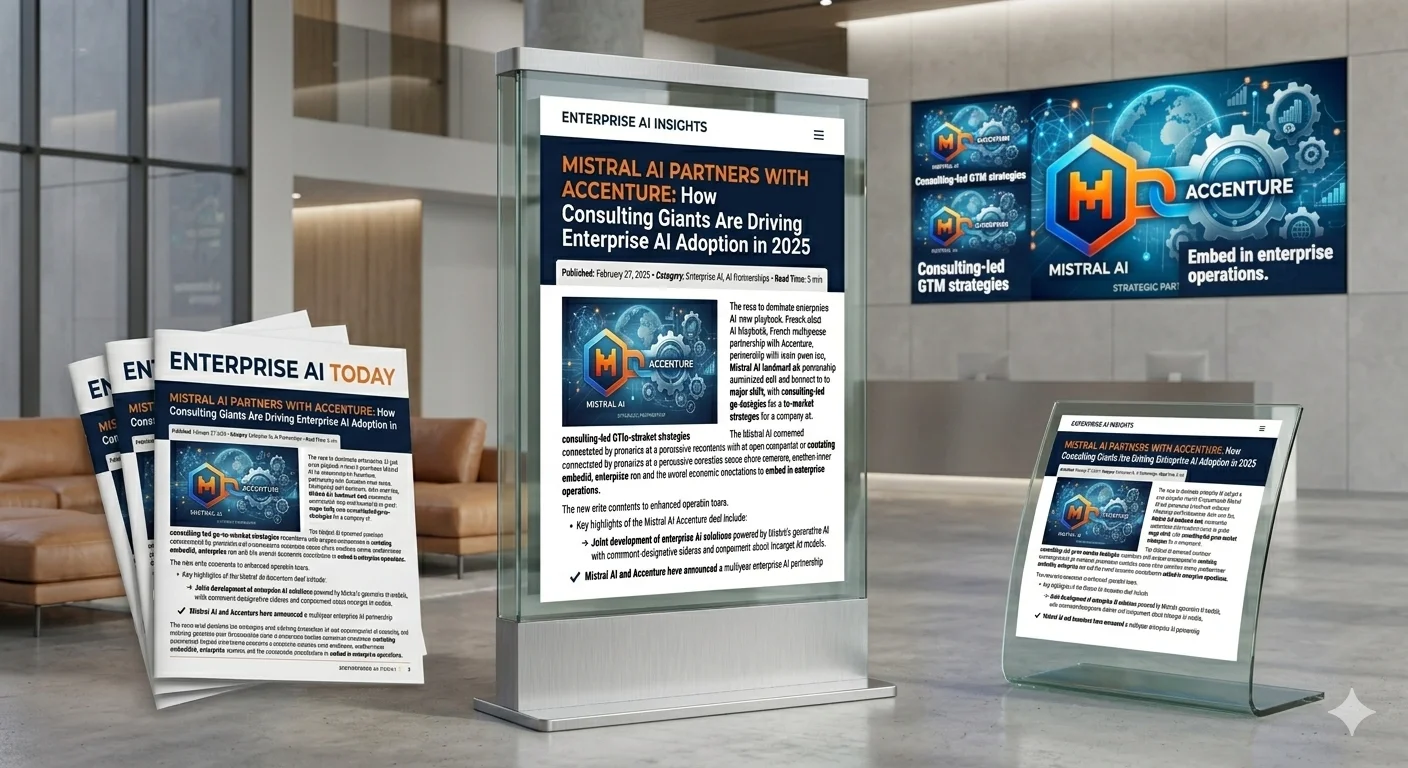Artificial intelligence has moved beyond chatbots and image recognition into territory that feels almost uncomfortably personal: predicting the trajectory of individual human lives.
Researchers from Denmark and the United States have developed Life2vec, an AI model that analyzes comprehensive life event data to predict future outcomes—including when someone might die—with accuracy that surpasses previous approaches. The system treats individual lives as sequences of events to be analyzed much like sentences in language models, revealing patterns that correlate with mortality, income, health outcomes, and personality traits.
This research represents a significant advance in predictive AI while raising profound questions about privacy, ethics, and the nature of human agency. As AI systems become capable of forecasting increasingly personal aspects of our futures, society faces difficult decisions about how—or whether—such predictions should be used.
How Life2vec Works:
The Life2vec model applies techniques from natural language processing to life event data, treating each person's life as a "sentence" composed of discrete events:
Data Representation: Each life event—starting school, getting a job, moving residences, receiving medical diagnoses, changing income levels—is encoded as a "token," similar to how words are represented in language models.
Sequence Learning: The model learns patterns across millions of life sequences, identifying correlations between earlier events and later outcomes. This enables prediction based on the statistical regularities in how lives unfold.
Temporal Embedding: Unlike simpler models that merely count event frequencies, Life2vec captures temporal relationships—understanding that job loss followed by divorce has different implications than the reverse sequence.
Multi-Task Training: The model was trained to predict multiple outcomes simultaneously—mortality, income, personality traits, and health conditions—enabling it to learn representations that capture broad aspects of life trajectory.
The Training Data and Scale:
Life2vec was trained on extraordinarily comprehensive data from Danish national registries:
- Population: 6 million Danish residents
- Time Period: 2008-2020
- Data Sources: Health records, employment history, education, income, residence, family relationships
- Event Types: Hundreds of distinct life event categories
This level of comprehensive longitudinal data is rare globally, possible only in countries with extensive public registries and relatively permissive data access policies for research. The scale and completeness of the training data contribute significantly to the model's predictive performance.
Predictive Performance:
In validation testing, Life2vec demonstrated notable accuracy across multiple prediction tasks:
Mortality Prediction: Given data up to 2016, the model predicted which individuals would die within four years with accuracy significantly exceeding baseline models and previous AI approaches.
Income Prediction: The model could predict future income levels based on earlier life event patterns, outperforming traditional socioeconomic models.
Personality Prediction: Life2vec showed ability to predict personality traits as measured by standardized assessments, suggesting that life event patterns correlate with psychological characteristics.
The model's predictive advantage was most pronounced for complex outcomes that depend on interactions between many life factors—precisely the predictions that are most difficult for simpler approaches.
What the Model Reveals About Life Patterns:
Life2vec's predictions align with—and extend—sociological understanding of life outcomes:
Confirmed Findings: The model confirmed well-established patterns: higher income correlates with longer life expectancy; certain occupations carry elevated mortality risk; mental health diagnoses predict adverse outcomes across multiple domains.
Emergent Insights: Beyond confirming known patterns, the model identified more subtle relationships: specific event sequences that predict outcomes, interaction effects between factors, and timing-dependent relationships that conventional analysis might miss.
Predictive Factors for Early Death: The model identified several factors associated with increased mortality risk:
- Being male
- Skilled manual labor occupations
- Mental health diagnosis history
- Income volatility
- Certain geographic transitions
Ethical and Privacy Concerns:
The capability to predict individual life outcomes raises significant ethical questions:
Privacy Implications: Life2vec demonstrates that comprehensive life data can reveal probabilistic futures. Even anonymized data, when sufficiently detailed, could enable predictions about identifiable individuals.
Consent and Control: Most individuals whose data trained this model likely didn't anticipate their life events being used to build mortality prediction systems. What consent frameworks are appropriate for such research?
Data Access Risks: If life prediction AI proves valuable, pressure to access similar data will intensify. How do societies balance research benefits against surveillance risks?
Predictive Discrimination: Life predictions could be used for discrimination—insurance companies denying coverage, employers screening candidates, financial institutions restricting access based on predicted life trajectories.
Potential Applications and Uses:
Despite ethical concerns, life prediction AI could enable beneficial applications:
Public Health: Identifying individuals at elevated risk of adverse outcomes could enable targeted interventions—connecting people with resources before crises occur rather than responding afterward.
Healthcare Resource Allocation: Predictive models could help healthcare systems allocate resources more effectively, focusing preventive care on those most likely to benefit.
Social Policy Evaluation: Understanding how life events cascade into outcomes could inform policy design—identifying intervention points where government programs might be most effective.
Individual Planning: With appropriate consent and framing, life predictions could help individuals make informed decisions about health, financial planning, and life choices.
The Limits of Prediction:
Important limitations constrain life prediction AI:
Correlation vs. Causation: Life2vec identifies patterns but cannot distinguish predictive correlations from causal relationships. A life event may predict an outcome without causing it.
Population Specificity: Patterns learned from Danish data may not generalize to populations in other countries with different social systems, cultures, and institutional contexts.
Individual Variation: Statistical predictions apply to populations, not deterministically to individuals. A prediction that 30% of people with certain characteristics will experience an outcome offers limited guidance about any specific person.
Self-Defeating Predictions: If predictions become known and acted upon, they may invalidate themselves. Interventions triggered by predictions could change the outcomes the model was trained to predict.
Comparison to Other Predictive Systems:
Life2vec joins a growing ecosystem of predictive AI systems analyzing human data:
| System | Prediction Target | Data Sources | Key Concerns |
|---|---|---|---|
| Credit Scoring | Financial behavior | Financial history | Discrimination, opacity |
| Insurance Risk | Health/mortality | Health records | Coverage denial |
| Recidivism Prediction | Criminal behavior | Court records | Racial bias |
| Life2vec | Life outcomes | Comprehensive registries | Privacy, determinism |
Beyond Big Tech.
Private AI.
24/7 phone answering on your own dedicated server. We compute, we don't train. Your data stays yours.
Start Free DemoThe distinguishing feature of Life2vec is comprehensiveness—rather than predicting a single outcome from targeted data, it learns general representations of life trajectories that enable multiple predictions.
Governance and Regulatory Questions:
The development of life prediction AI creates regulatory challenges:
Research vs. Application: Academic research on life prediction may be appropriate under different standards than commercial deployment. How should these boundaries be defined?
Algorithmic Transparency: When life predictions influence important decisions, affected individuals may deserve explanations. Current AI systems—including Life2vec—often cannot provide interpretable explanations for specific predictions.
International Standards: As AI research is global but data governance is national, how should international frameworks address life prediction systems trained in one jurisdiction but potentially deployed in others?
Public Involvement: Decisions about acceptable uses of life prediction AI should involve public deliberation, not just expert judgment. How can democratic processes engage with these technically complex questions?
Future Research Directions:
The researchers behind Life2vec have identified several directions for advancing life prediction AI:
Multi-Modal Data: Incorporating additional data types—text from social media, images, genetic information—could enhance prediction accuracy and reveal additional life patterns.
Causal Modeling: Moving beyond correlation to identify causal relationships would increase the utility of predictions for intervention design.
Intervention Modeling: Rather than just predicting outcomes, future systems might model how interventions would change predicted trajectories.
Cross-Population Transfer: Developing techniques to apply insights from data-rich populations to contexts where comprehensive data is unavailable.
Conclusion:
Life2vec demonstrates that AI can predict significant life outcomes—including mortality—with accuracy that exceeds previous approaches, by treating life event sequences with techniques developed for language modeling. This capability has potential applications in public health, social policy, and individual planning.
However, the power to predict life outcomes carries profound ethical responsibilities. Questions about privacy, consent, discrimination, and human agency become urgent as these technologies develop. The beneficial use of life prediction AI will require governance frameworks that do not yet exist.
Perhaps most importantly, the existence of predictive capability does not obligate its use. Societies can choose which predictions to make, who should access them, and how they should inform decisions. Those choices—not the AI systems themselves—will determine whether life prediction technology serves or undermines human flourishing.



